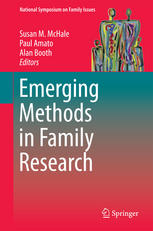

Most ebook files are in PDF format, so you can easily read them using various software such as Foxit Reader or directly on the Google Chrome browser.
Some ebook files are released by publishers in other formats such as .awz, .mobi, .epub, .fb2, etc. You may need to install specific software to read these formats on mobile/PC, such as Calibre.
Please read the tutorial at this link: https://ebookbell.com/faq
We offer FREE conversion to the popular formats you request; however, this may take some time. Therefore, right after payment, please email us, and we will try to provide the service as quickly as possible.
For some exceptional file formats or broken links (if any), please refrain from opening any disputes. Instead, email us first, and we will try to assist within a maximum of 6 hours.
EbookBell Team

4.1
60 reviewsThe family can be a model of loving support, a crucible of pathology, or some blend of the two. Across disciplines, it is also the basic unit for studying human relationships, patterns of behavior, and influence on individuals and society. As family structures evolve and challenge previous societal norms, new means are required for understanding their dynamics, and for improving family interventions and policies.
Emerging Methods in Family Research details innovative approaches designed to keep researchers apace with the diversity and complexities of today's families. This versatile idea-book offers meaningful new ways to represent multiple forms of diversity in family structure and process, cutting-edge updates to family systems models and measurement methods, and guidance on the research process, from designing projects to analyzing findings. These chapters provide not only new frameworks for basic research on families, but also prime examples of their practical use in intervention and policy studies. Contributors also consider the similarities and differences between the study of individuals and the study of family relationships and systems. Included in the coverage:
Use of nonlinear dynamic models to study families as coordinated symbiotic systems.
Researchers in human development, family studies, clinical and developmental psychology, social psychology, sociology, anthropology, and social welfare as well as public policy researchers will welcome Emerging Methods in Family Research as a resource to inspire novel approaches to studying families.